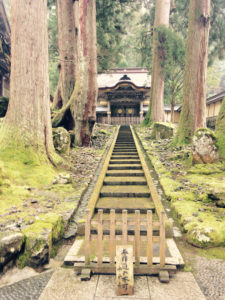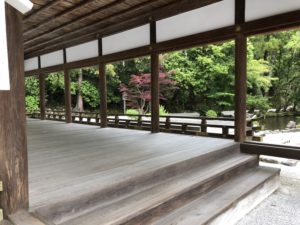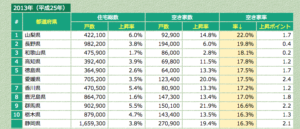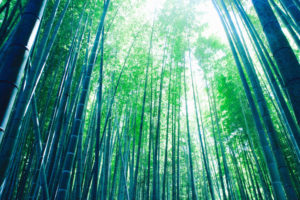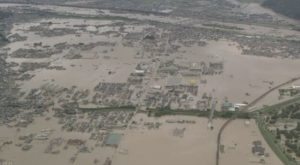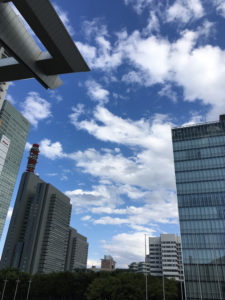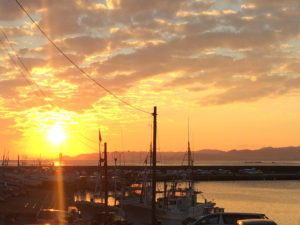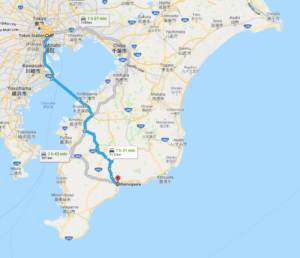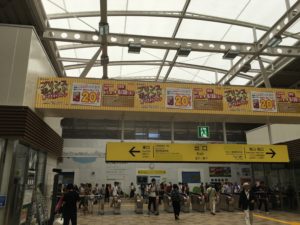Here is an idea worth considering. Imagine being able to get Japan’s new green card only in a year.
Japan needs more skilled foreign workers.
To attract more foreign workers, Japanese government relaxed requirements for permanent residency (so-called green card) last April (2018)
Before relaxing the requirement, high skilled professional (HSP) workers had to stay in Japan for at least five years before applying for green card, but now just one year is required.
In fact, it is the fastest green card system in the developed countries.
Some pundits are saying relaxed law will bring more foreign high skilled workers but whether it will be a game-changer remains to be seen.
Japan is also said to be a tough country for foreign workers to live due to the very unique traditions such as corporate culture and seniority system, which is another hurdle to clear even after obtaining the green card.
In 2012, Japan introduced a point system for skilled workers. The points are given based on individual backgrounds, including business experience, income, Japanese-language fluency and academic degrees. The system is intended to give preferential status to such skilled workers, including a shortened path for permanent residency. When the system was enacted, those who had 70 points or more could apply for green card after five years. Normally, it takes 10 years to apply for the status.
Tag Archive for Real estate investment
Fast track for permanent residency for highly skilled foreigners :Japan’s Groundbreaking New Green Card system
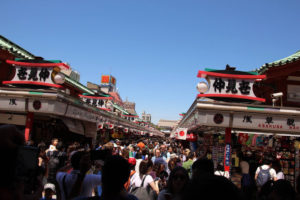
Japan dramatically relaxed Green Card system !
Bold new opportunity to obtain Japan’s new Green Card.
Are you interested in Japanese Green Card with Japan’s social security and universal healthcare service ?
Here is what you should do.
Invest in the property here and get the ‘business manager’ status.
Japan is facing the acute shortage of workforce.
To address the issue, Prime Minister Abe has been drastically relaxing the immigration control for both low skilled workers and high skilled professionals.
Japan needs both low skilled workers as well as advanced skilled managers.
There is a new visa category called Highly-Skilled Professionals (HSP).This new category was relaxed dramatically last year and now Japanese government is offering preferential treatment for the category, which makes applicants much easier to apply for the so-called
‘GREEN CARD’.
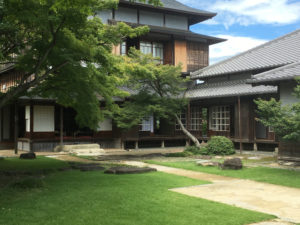
In this relaxed category, HSP can apply for ‘GREEN CARD’ earliest within ONE YEAR (subject to your points) after you
get status of HSP. The Green Card application procedure is based on the points-based system.
The new approach follows the government’s introduction of a point system for highly skilled professionals in 2012.
Under this system, people are scored according to factors such as academic background, career background and annual salary, and are categorized under the field of “academic research,” “technical activities,” or “business management.”Read more
The lure of Japan’s hidden treasures “Akiya” : Why are so many houses empty in Japan ?
Terrifying hidden crisis or treasures ?
In Japan, recycling is so much part of our culture.
And yet, it is also the norm for Japanese to demolish their houses with almost less thought than most people would give to disposing beloved ceramic bowls.
People believe homes are usually built to last 50 odd years. Japanese building culture is often described as ‘scrap and build’.
The reasons for this phenomenon range from the ageing to need for constantly updating building technology as it revolves.
With shrinking population, the result is a housing problem that is the opposite of what most countries face. Japan has too many houses that no one wants.
According to the government statistics, the number of vacant houses (空き家、akiya) in 2013 reached 8.2 million.
(But the 8.2 million includes houses/apartment units for rent that are only vacant temporarily as owners try to find tenants or buyers. So genuine empty homes that have been abandoned altogether number about 3 million)
Moreover, many who inherit a house are unable to sell them because of a shortage of interested buyers. The problem is particularly acute in rural areas.
According to one statistics, the top ten ranking of akiya in prefectures as of 2013 was as follows.
(The number indicates the percentage of akiya in dwellings of each prefecture)
In these prefectures, 1 out 5 properties are empty.
1.Yamanashi 22%
2.Nanago 19.8%
3.Wakayama 18.1%
4.Kochi 17.8%
5.Tokushima 17.5%
5. Ehime 17.5%
7. Kagawa 17.2%
8. Kagoshima 17.0%
9.Gunma 16.6%
10.Tochigi 16.3%
10. Shizuoka 16.3%
(top10 ranking)
THE IMPACT of NATURAL DISASTERS. Nankai Trough Earthquake : Risk in Tokyo Bay from future tsunami
Cleanup, rescue operations underway in Japan after severe rains kill over 200 people and strand thousands in the recent flooding and landslides in west Japan.
On Mar 11, 2011, a devastating 9.0-magnitude quake struck under the Pacific Ocean, and the resulting tsunami caused widespread damage and claimed tens of thousands of lives.
It also sent three reactors into meltdown at the Fukushima nuclear plant, causing Japan’s worst postwar disaster and the most serious nuclear accident since Chernobyl in 1986.
The devastating tsunami hit sites along the Tohoku coast.
A public beach just opened in Rikuzentakata on July 20, 2018 for the first time in eight years, underscoring the destruction of sites.
In 1703, an 8.2 magnitude earthquake(Genroku earthquake) along the Sagami Trough triggered a tsunami that rippled towards Japan’s then capital, Edo. It is estimated that a couple of thousands lives were lost.
Japan has a lot of natural disasters and many foreign investors are worrying about it.
A major earthquake is expected to strike sometime along the Nankai Trough, a submarine trench running off the Japanese archipelago from around Shizuoka Prefecture in Honshu to the seas east of Kyushu.
How at risk is Tokyo Bay from future tsunami by Nankai Trough earthquake ?
The Nankai Trough is a 700-kilometer-long sea-bottom depression that runs about 100 km off the southern coast from Shizuoka Prefecture to the Shikoku region.
How the investment in a local city works ? : Opportunity to invest in center of Sapporo residential building. No down payment is needed
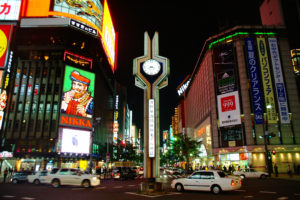
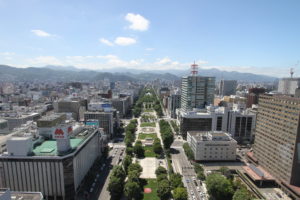
(Night life Susukino in Sapporo) (Odoori koen)
No down payment is needed.
Remarkable opportunity in Sapporo is up for sale in Sapporo.
One of my business partners has come across a pretty good property in Sapporo in northern Japan.We don’t usually deal with a property in Sapporo.
However, as the project already has passed the provisional review by a premier Japanese bank, I am introducing it on his behalf.
Let’s find out how viable it is.
Oh, by the way, If you seek investment that can expect the appreciation of 20% over next 3 years,
Japan is not your destination. Please go and find a property in countries like Thailand or Vietnam.
How to avoid the severe flooding in Japan ? : Over 200 people died in recent floods and landslides
(From NHK)
Over 200 people have died in floods and landslides triggered by the recent torrential rain in western Japan in July 2018.
It is the highest death toll caused by rainfall that Japan has seen in more than four decades.
In Japan, 1300 municipalities released the hazard maps.
They namely pinpoint locations at risk of floods or landslides.
There was a time when the disclosure of hazard information raised many eyebrows as fanning people’s fears and lowering property values.
But after we saw the recent worst flooding disaster in west of Japan in four decades, this is no longer the case.
In the Mabicho district of Kurashiki, Okayama Prefecture, the flooded areas reportedly corresponded exactly to what the hazard map showed. To date, more than 40 bodies have been recovered from severely flooded residential neighborhoods, now blanketed with mud.
Is it end of booming real estate market in Japan ? : Kenbiya latest quarterly report June 2018
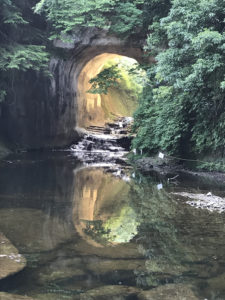
(Nomizo -no-taki(Nomizo fall), Chiba pref)
Is a tidal wave finished in Japan ? It is about time to to buy a property ?
Japan’s one of the major online web sites for the investment properties ‘Kenbiya’ recently announced the latest market trend on the properties that are registered on the site in Japan.
It is not an official report by the public sectors but the research shows the quick snap shot of the market trend.The research results cover the period between April 2018 and June 2018
on properties in Japan for each market segment.
Let’s take a closer look at the result.
Overview on all Japan
Condo unit
The gross yield of registered properties is almost unchanged at 7.69% ( minus 0.02 points compared with the previous term).
The average price fell slightly to 14.24 million yen (-3.85% from the previous term).
Residential apartment building
The gross yield of registered properties rose slightly to 8.91% ( plus 0.13 points). The average price is 67.4 million yen ( minus 2.06% from the previous term).
The average price for the apartment buildings declined for the first time since 2013.
Residential condo building
Registered yield slightly increased to 8.06% (plus 0.09 points).
The average price slightly went up to 16,329,000 yen (plus 0.66%)
New Survey Reveals the Bank loan Is the Biggest Challenge Facing in Real Estate Investment in Japan: But investors are still bullish
Are you bullish or bearish ?
Two surveys by the major institutions revealed that both institutional investors and individual investors are bullish about the real estate market in Japan.
In the survey released by the Japanese real estate research institute in May, real estate price has been rising steadily due to the recovery of corporate performance and the expectations for the Tokyo Olympic Games and Abenomics.
The survey was conducted mainly for institutional investors.
However, 72 % of respondents say the real estate investment market is seeing the peak for the time being.
83.2% of respondents say many deals with remarkably low yields are appearing, compared to 68% in the previous survey in October 2017.
As for the view on investment in the next coming year, 90% of respondents say they will actively continue to make investments, up one point from the previous survey.
It indicates that the general consensus is still bullish.
Only 8% of respondents say they will be stopping the making new investment. Regarding the real estate market, attention is paid to interest rate trends in the United States and the monetary policy of the Bank of Japan.
As a whole investors’ willingness to invest is very positive
Regarding market expectation, the majority of institutional investors say that the market will expand in the next 6 months in both Tokyo and Osaka.Read more
1.5 hour by car from the center of Tokyo, enjoy the magnificent ocean view adjacent to Pacific Ocean: Unspoiled real estate opportunities in Kamogawa
(Sunset in Katsuura city)
* Foreigners can buy a property in Japan without having special qualification.
The days with the ocean view spreading in front of you will make your time away from your busy city life. You can enjoy BBQ, parties etc in the garden with your friends.
Minamiboso area -Minamiboso city, Tateyama city, Kamogawa city and Katsuura city- in Chiba prefecture
can offer you such priceless time.
If you have never been there, you would be amazed to see the beautiful blue ocean.
Okinawa is better ?
Well, there is really no comparison.
I am not saying Kamogawa is the most beautiful in the world and have topped the list of dream holiday destinations.
There’s no doubting the allure of its perfect white sand beaches and swaying palms in Okinawa or Ishigaki islands.
But you can’t go to Okinawa every week.
Kamogawa certainly is a good place to get away from busy Tokyo and treat yourself to a view of the blue oceans, and wide skies.
In fact, in order to captivate the opportunities due to the recent market dynamics in private lodging law, I am seeking a property (house) to renovate and run as a hotel in Kamogawa right now.
Today I am discussing the viability of the investment in Kamogawa and surrounding area.
Where is Kamogawa ?
(Map from Tokyo to Kamogawa city)
Kamogawa (鴨川市 Kamogawa-shi) is a city located in Chiba Prefecture, Japan.
As of May 2018, the city had an estimated population of 32,789. It is a small city.
Kamogawa is near the southeastern tip of the Boso Peninsula, facing the Pacific Ocean, about 70 km south of the prefectural capital, Chiba City,
and about 85 km from Tokyo.
The area has a warm maritime climate with hot summers and mild winters.
(perfect for weekend villa or second house !)
Kamogawa is home to Mount Atago, which at 408.2 m (1,339 ft) is the highest point in Chiba Prefecture.
Flipping akiya houses dependent on knowing costs, the local housing market : What is a key to success ?
(Tokorozawa station, Seibu line)
* Foreigners can buy a property in Japan without having special qualification.
Do you want to join the small handful of people who are doing the house flipping here ?
Maybe we have got a better solution to abandoned houses problem in Japan.
Apparently home flipping investment is a lucrative and fulfilling way to make thousands of dollars within a short period of time in US. But it can also be a difficult and frustrating endeavor when things go wrong.
And things will often go wrong. I have read about the stories that investors talk about the various obstacles in their way. Flipping homes requires hard work, persistence, and a great deal of patience,
because you’ll inevitably encounter problems in the process.
What about the flipping houses Japan ?
Since there are so many abandoned houses here in Japan, can we do something similar ?
The answer is yes and no.
Let me start with the background by quoting an article in The Japan Times.
Background
The Japan Times on December 26, 2017 says “Over 8 million properties across Japan are unoccupied, according to a 2013 government report. Nearly a fourth have been deserted indefinitely, neither for sale nor rent.
In Tokyo — where 70 percent of the people live in apartments — more than 1 in 10 homes are empty, a ratio higher than in cities like London, New York and Paris.
And that figure is expected to soar in the coming decades as deaths outpace births in a super-aging society where more than 1 in 4 people are 65 or older.
Nomura Research Institute, prominent research firm, projects the number of abandoned dwellings to grow to 21.7 million by 2033, or roughly one-third of all homes in Japan.
Meanwhile the population, which peaked nearly a decade ago, is forecast to fall 30 percent by 2065, creating an ever-increasing pool of uninhabited houses.”

